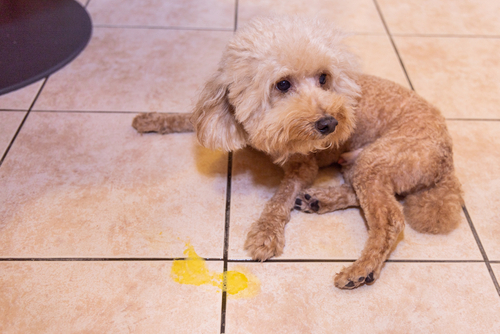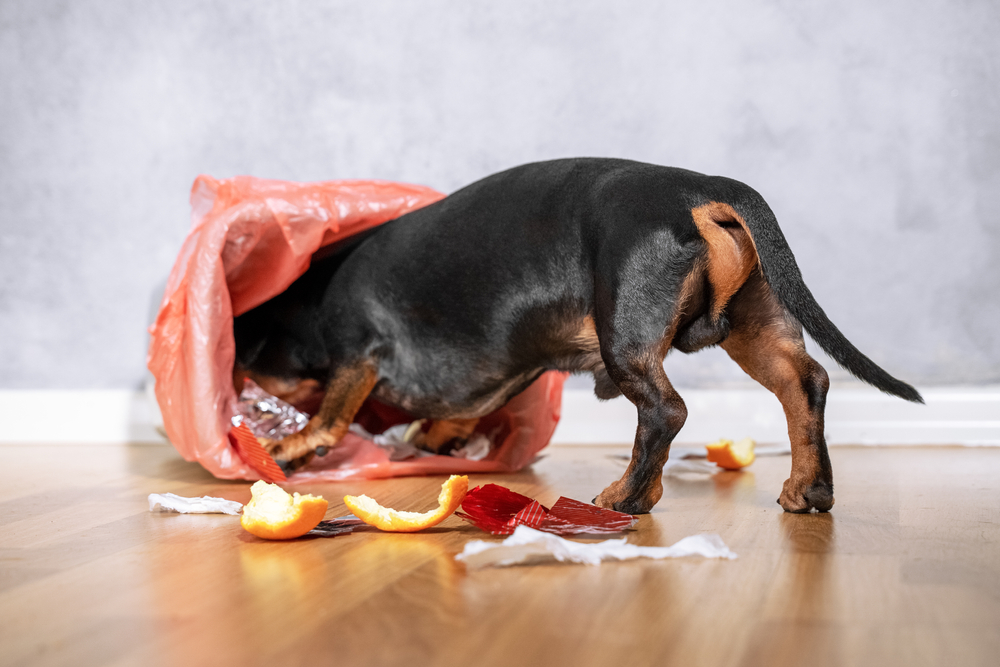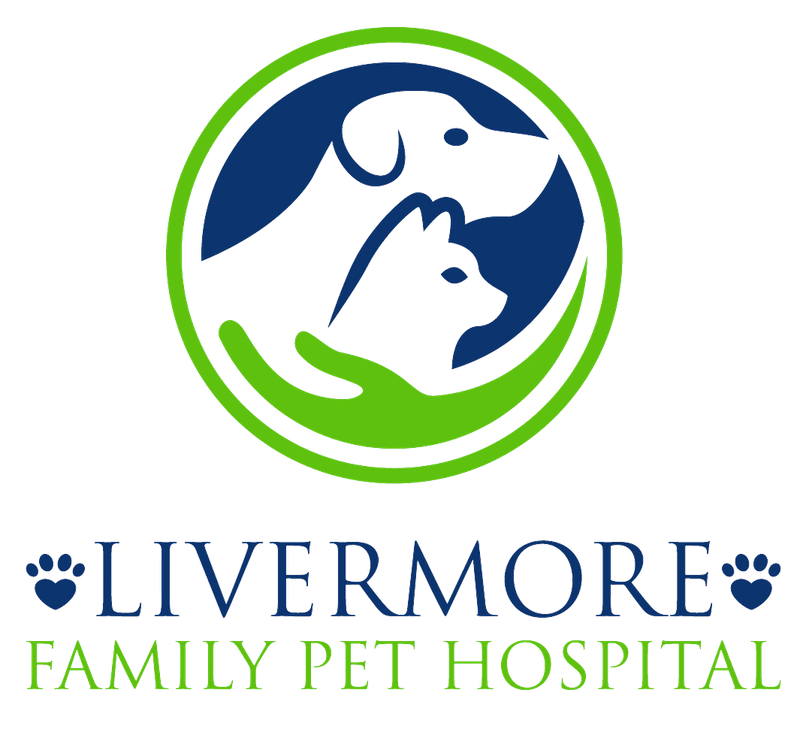
Your dog’s inquisitive nature causes them to eat some inadvisable substances. This indiscretion can result in stomach upset and vomiting. While a vomiting dog is not usually cause for immediate concern, you should not dismiss this behavior, because some serious conditions can also result in vomiting. Our team at Livermore Family Pet Hospital would like to help you determine when your vomiting dog is in danger.
Examine your dog’s vomit
Before cleaning up the mess, examine your dog’s vomit for clues about what caused the episode.
- Undigested food — If your dog expels undigested food, they likely regurgitated as opposed to vomiting. Regurgitation is a passive action that lacks the retching and abdominal muscle contractions seen in vomiting. This usually occurs shortly after your dog eats, and the expelled material is typically cylindrical in shape. Causes include eating too fast, esophageal ulceration, and a condition called megaesophagus, in which the esophagus dilates, and causes a pouch where food accumulates.
- Bile — If your dog’s vomit is mostly yellow fluid, this indicates that their stomach is empty. The liver releases a digestive fluid, called bile, into the small intestine that can irritate your dog’s stomach.
- White foam — If your dog’s vomit is foamy and white, this could indicate acid reflux or indigestion.
- Blood — Blood in your dog’s vomit indicates your dog is bleeding somewhere along their digestive tract, and is considered a medical emergency.
- Worms — A heavy parasite infection can result in your dog vomiting worms. Take a picture, so our veterinary professionals know what type of parasite to treat.
- Inedible material — If you see toy pieces, clothing, or any other material that cannot be digested, your dog likely swallowed a foreign object. They will need a veterinary professional’s evaluation, because the object could cause a gastrointestinal blockage.
Determine if your dog needs veterinary attention
A singular vomiting occurrence is not a concern, as long as your dog remains bright and alert, and maintains a healthy appetite. Factors indicating your dog needs veterinary attention when they are vomiting include:
- Age — If you have a puppy or a senior dog, they should be evaluated quickly, because they have a weakened immune system, and are more susceptible to dehydration.
- Foreign body — If you witness or suspect your dog ingested a foreign object, they should be evaluated to check for a gastrointestinal blockage. This will likely entail X-rays and possibly an ultrasound, depending on the material ingested.
- Poison — If you witness or suspect your dog ingested a poisonous substance, immediately contact Livermore Family Pet Hospital or Animal Poison Control. Be prepared to relay your dog’s breed, age, and weight. If possible, have the label of the substance they ingested handy, to read them the ingredients and concentration.
- Other signs — If your dog has other signs in addition to vomiting, including diarrhea, fever, lethargy, pain, distended abdomen, trouble breathing, and seizure, they need a veterinary evaluation.
- Unproductive vomiting — If your dog is retching unproductively, they could be suffering from bloat or a gastrointestinal blockage. These conditions are veterinary emergencies, and can be life-threatening.
- Frequent vomiting — If your dog vomits several times over a few hours, this could indicate a serious problem.
- Chronic vomiting — If your dog vomits periodically over several days or weeks, especially if you notice they are losing weight, they need a veterinary medical exam.
- Medication — If your pet takes a prescription medication, you should contact a veterinary professional to determine if they need medical attention.
- Bloody vomit — Blood in your dog’s vomit is considered a veterinary medical emergency.
Manage your vomiting dog
For a solitary vomiting incident, you may choose to monitor your dog before taking them to the veterinary hospital. A few tips to help soothe your dog’s stomach include:
- Food — Withhold food for 12 to 24 hours, to allow their stomach to settle. Then, when you start feeding them again, offer small, bland meals. Commercial bland diets are available, or you can feed plain boiled rice and chicken breast. As long as your dog keeps the bland diet down, you can start to re-introduce their normal food after 24 hours.
- Water — Ensure your dog stays well hydrated by offering numerous fresh water sources, and keeping their bowls clean. If your dog refuses to drink, you should contact our veterinary professionals at Livermore Family Pet Hospital.
- Exercise — Avoid strenuous activity while your dog is recuperating.
Prevent your dog from vomiting

While you cannot prevent your dog from ever vomiting, you can take a few precautions to limit their exposure to factors that cause vomiting.
- Vaccinations — Keep your dog up to date on their vaccinations, to prevent diseases that cause vomiting, such as parvo and distemper.
- Trash — Keep trash and food in closed containers in an area your dog cannot access.
- Poisons — Keep your dog away from common household poisons, such as cleaning solutions and lawn chemicals.
- Toxic foods — Keep your dog away from toxic foods, such as chocolate, onions, garlic, and grapes.
- Toys — Discard broken or damaged toys, and pick up objects that your dog may be tempted to swallow.
The next time your dog vomits, you will be prepared to determine if the condition is one for concern. If you would like to discuss your dog’s vomiting issues, do not hesitate to contact our team at Livermore Pet Hospital.

